Ditapis dengan
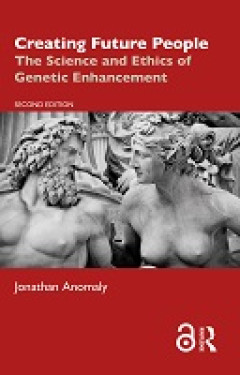
E-book Creating Future People: The Science and Ethics of Genetic Enhancement …
Creating Future People offers readers a fast-paced primer on how advances in genetics will enable parents to influence the traits of their children, including their children’s intelligence, moral capacities, physical appearance, and immune system. It explains the science of gene editing and embryo selection and motivates the moral questions it raises by thinking about the strategic aspects of…
- Edisi
- -
- ISBN/ISSN
- 9781040008553
- Deskripsi Fisik
- 175 halaman
- Judul Seri
- -
- No. Panggil
- 301 ANO c
E-book Capability Brown, Royal Gardener : The Business of Place-Making in Nor…
Yet Brown’s family lived in Kirkhale, in Northumberland, a fairly typical small rural community, over 300 miles to the north, far from the glittering metropolitan world. His father, who died in 1720 when Brown was only four, was a farmer and land agent to the local lord, Sir William Loraine, yet the young Brown was educated at the local school in Cambo – possibly through the good offices of…
- Edisi
- -
- ISBN/ISSN
- 9781912482252
- Deskripsi Fisik
- 241 hlm
- Judul Seri
- -
- No. Panggil
- 712.5 BOT c
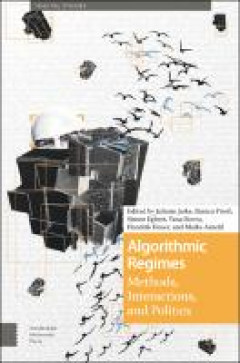
E-Book Algorithmic Regimes: Methods, Interactions, and Politics
Algorithms have risen to become one, if not the central technology for producing, circulating, and evaluating knowledge in multiple societal arenas. In this book, scholars from the social sciences, humanities, and computer science argue that this shift has, and will continue to have, profound implications for how knowledge is produced and what and whose knowledge is valued and deemed valid. To …
- Edisi
- -
- ISBN/ISSN
- 9789463728485
- Deskripsi Fisik
- 348 halaman
- Judul Seri
- -
- No. Panggil
- 518.1 JAR a
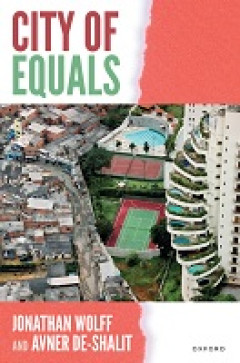
E-Book City of Equals
When we think about equality in the city, we are very likely to think first of the wide and growing divide between rich and poor, in material terms. Yet when we think more about a 'city of equals' it becomes apparent that how people feel treated by the city and those around them, and whether they can live according to their values, are much more central. Accordingly, combining their own reflect…
- Edisi
- -
- ISBN/ISSN
- 9780198894735
- Deskripsi Fisik
- 225 halaman
- Judul Seri
- -
- No. Panggil
- 320 WOL c
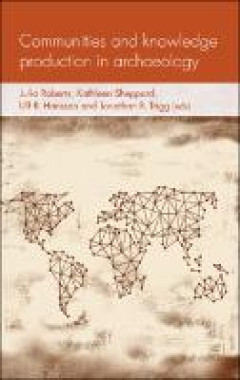
E-Book Communities and Knowledge Production in Archaeology
The dynamic processes of knowledge production in archaeology and elsewhere in the humanities and social sciences are increasingly viewed as the collaborative effort of groups, clusters and communities of researchers rather than the isolated work of so-called ‘instrumental’ actors. Shifting focus from the individual scholar to the wider social contexts of her work and the dynamic creative pr…
- Edisi
- -
- ISBN/ISSN
- 9781526134561
- Deskripsi Fisik
- 269 halaman
- Judul Seri
- -
- No. Panggil
- 930.1 ROB c
E-book A Companion to The Roman Empire
Fifteen years ago, historians of the Roman world were in the process of dismantling the hierarchical structure of their subject that had endured since the beginning of scholarly discourse about the Roman Empire. In the late sixties and early seventies, scholars began to move away from work concentrating on the dominant social and political group that had produced the bulk of the surviving liter…
- Edisi
- -
- ISBN/ISSN
- 9780631226444
- Deskripsi Fisik
- 715 hlm
- Judul Seri
- -
- No. Panggil
- 937 POT a
E-book Handbook of Fish Biology and Fisheries
According to the United Nations Food and Agricultural Organization (FAO), there was a steady increase of fish catches until the middle of the 1990s when the catch began to level off (Fig. 1.1). Recent work by Watson and Pauly (2001) has shown that in reality the total marine catch of fish has been declining by some 10% a year since 1988. The apparent continued increase until the mid1990s was du…
- Edisi
- Vol. 1
- ISBN/ISSN
- 0632054123
- Deskripsi Fisik
- 420
- Judul Seri
- -
- No. Panggil
- 597 HAR h
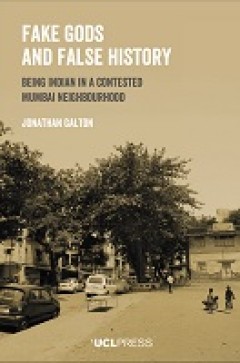
E-Book Fake Gods and False History: Being Indian in a Contested Mumbai Neighb…
n an age where history is a global battleground and fake news proliferates, culture wars are being waged across India over its future – majoritarian or inclusive, neoliberal or socialist, religious or secular? Fake Gods and False History takes us to the BDD Chawls, a central Mumbai neighbourhood of tenement blocks (chawls) on the brink of a controversial redevelopment. Throughout the book, …
- Edisi
- -
- ISBN/ISSN
- 9781800085800
- Deskripsi Fisik
- 237 halaman
- Judul Seri
- -
- No. Panggil
- 305.8 GAL f
E-book The Currency of Empire : Money and Power in Seventeenth-Century Englis…
his book examines the pivotal role that silver and gold money played in the formation and working out of England’s Amer-ican colonial proj ect in the seventeenth century. The book argues, first, that money was the primum mobile, or prime mover, of En glish imperial action and overseas activity, including the impulse for colonization, the regulation of colonial trade, and the introduction…
- Edisi
- -
- ISBN/ISSN
- 9781501755781
- Deskripsi Fisik
- 396 hlm
- Judul Seri
- -
- No. Panggil
- 970.03 BAR t
E-book The World as Abyss : The Caribbean and Critical Thought in the Anthrop…
In 1939 Martinican writer Aimé Césaire first published his book length poem variously translated as Notebook of a Return to My Native Land, Return to My Native Land, or Journal of a Homecom-ing, in which this epigraph appears. As the colonial powers were taking the world into an era of mass destruction, Césaire drew upon a Caribbean imaginary to counterpose to th…
- Edisi
- -
- ISBN/ISSN
- 9781915445315
- Deskripsi Fisik
- 123 hlm
- Judul Seri
- -
- No. Panggil
- 301 PUG t
 Karya Umum
Karya Umum  Filsafat
Filsafat  Agama
Agama  Ilmu-ilmu Sosial
Ilmu-ilmu Sosial  Bahasa
Bahasa  Ilmu-ilmu Murni
Ilmu-ilmu Murni  Ilmu-ilmu Terapan
Ilmu-ilmu Terapan  Kesenian, Hiburan, dan Olahraga
Kesenian, Hiburan, dan Olahraga  Kesusastraan
Kesusastraan  Geografi dan Sejarah
Geografi dan Sejarah